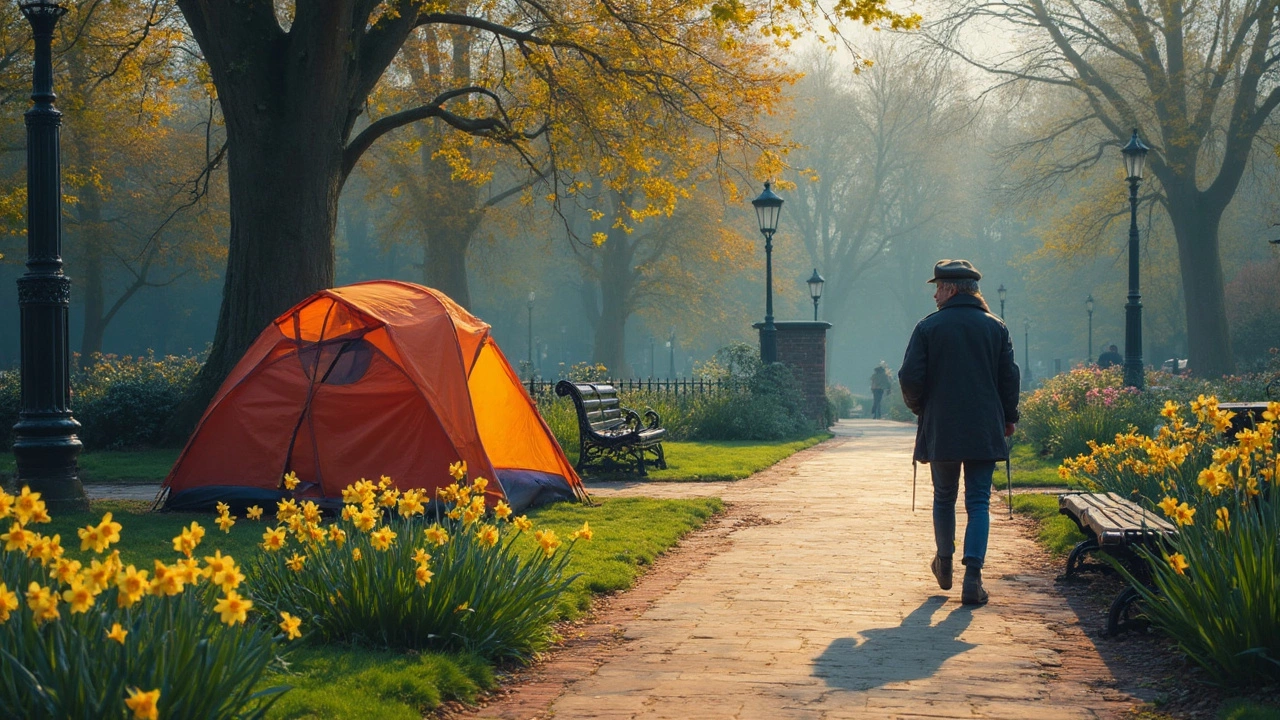
Can You Legally Camp in UK Public Parks? Rules, Risks, and Tips
Curious about putting up a tent in a UK public park? This guide uncovers the laws, risks, and real tips for wild camping in Britain.
Read MoreIf you love waking up to fresh air but don’t want to book a campsite, a public park can be a handy alternative. Before you roll out the mat, make sure you’re on the right side of the law and that you leave the park as tidy as you found it. Below are the must‑know basics and some simple tricks to make your park‑pitch smooth.
In England, Scotland and Wales most public parks are owned by local councils. That means they set the rules, and they can differ from one park to the next. The first thing to do is check the council’s website or give the park office a call. Look for keywords like “overnight stay”, “camping” or “tent”. If the page says “no camping”, you’ll need to pick another spot – trying to stay anyway can lead to fines or an angry ranger.
Some parks allow a one‑night pitch with a permit, especially during off‑peak seasons. The fee is usually low, often under £10. When you apply, you’ll be asked for dates, the number of people, and a brief description of your set‑up. Keep a copy of the permit in your bag; a quick photo on your phone works if you’re asked to show it.
If the park doesn’t allow overnight stays, you still have options. Look for nearby “wild camping” areas where you can legally set up a tent, or consider a nearby official campground. Remember, the rule isn’t “you can’t camp”, it’s “you need permission”. Getting that permission is usually free or cheap.
Choosing the right spot is key. Aim for flat ground away from footpaths, playgrounds and water features. A slight slope helps rain run off, but avoid steep drops that could flood your gear. Bring a small tarp to protect your tent base from damp ground – it adds a layer of comfort and protects the grass.
Respect other park users. Keep noise down, especially after 10 pm, and don’t block pathways. If you’re near a picnic area, give families space to eat and kids to play. Use a low‑light lantern instead of a bright floodlight.
Leave no trace. Pack out all rubbish, leftovers, and even toilet paper if you used a portable toilet bag. A simple “leave‑it‑as‑you‑found‑it” rule keeps the park clean for everyone and avoids complaints.
Safety first: check the weather forecast before you go. If rain looks likely, bring a waterproof rainfly and seal all zip‑tops. Have a basic first‑aid kit in your daypack and know the nearest pharmacy or medical centre.
Finally, be ready to move out quickly if a ranger shows up. Most councils ask campers to leave within an hour of being told, and they’ll usually be friendly if you comply right away. A quick, polite “sorry, I’ll be out in a minute” goes a long way.
With the right permission, a sensible spot, and a tidy attitude, pitching a tent in a public park can be a cheap, scenic way to enjoy a night outdoors. Pack smart, respect the rules, and you’ll be back for more adventures without any hassle.

Curious about putting up a tent in a UK public park? This guide uncovers the laws, risks, and real tips for wild camping in Britain.
Read More